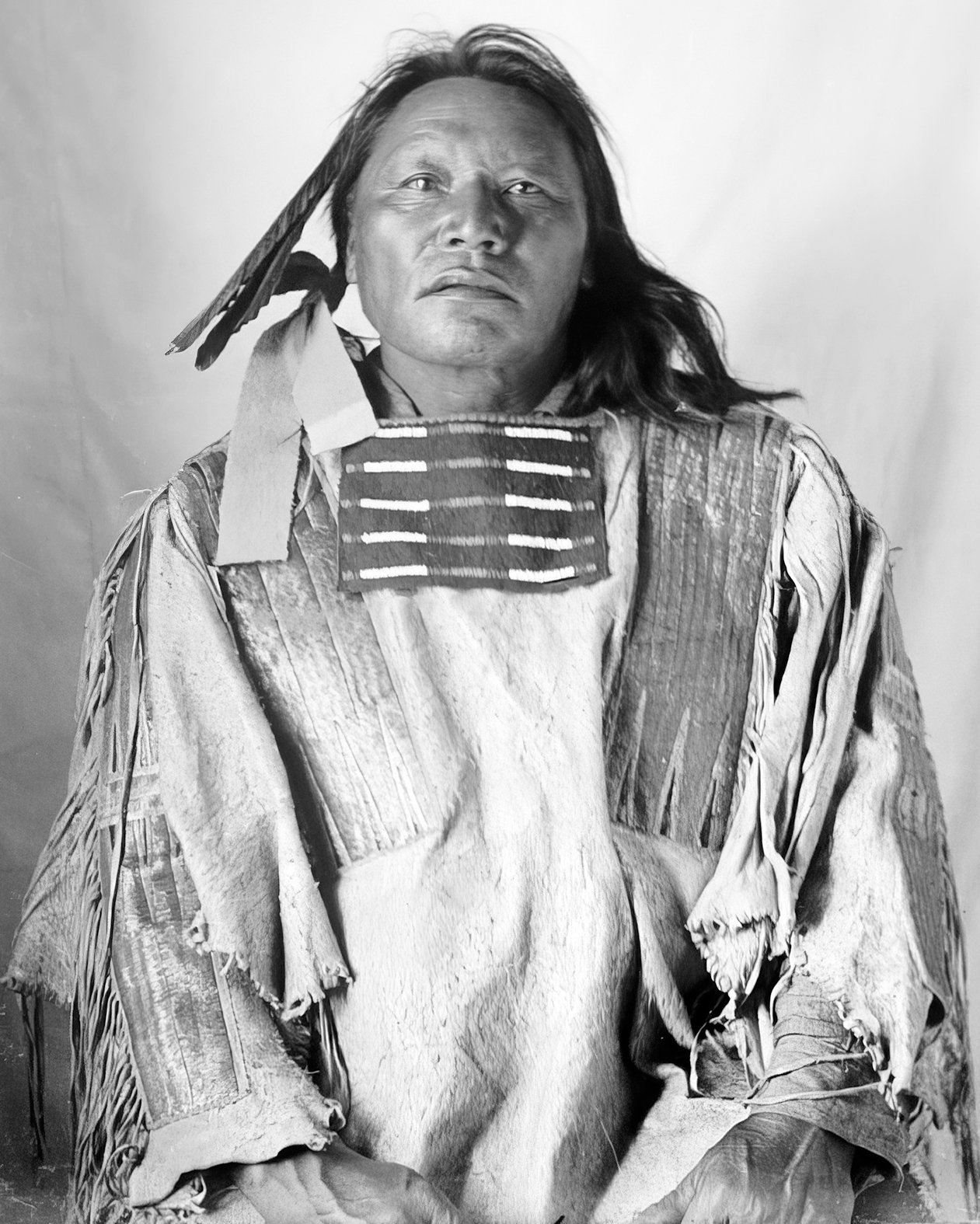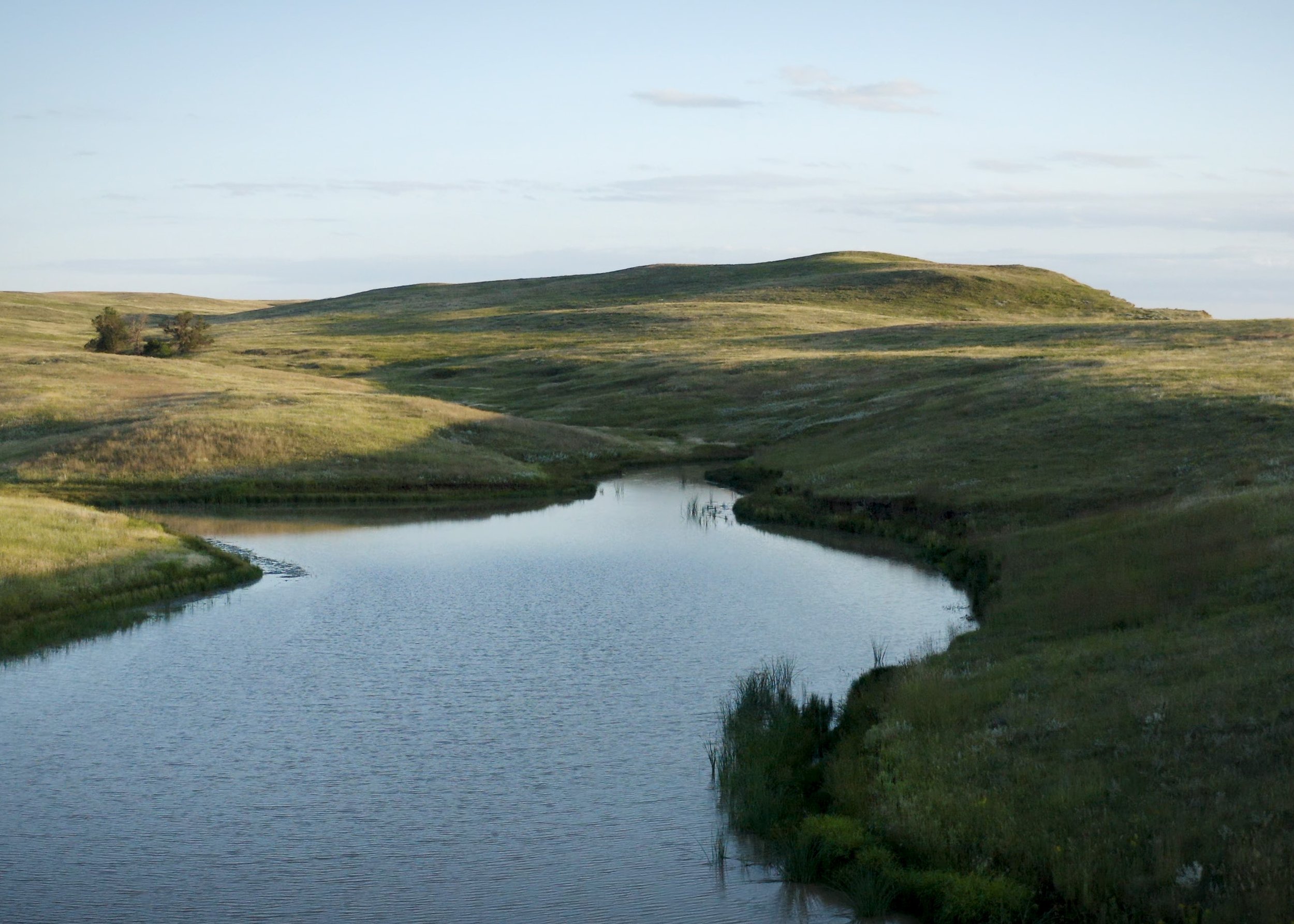
Treatment of the Sick
Pictured above: Bear-with-White-Paw.
From Teton Sioux Music by Frances Densmore:
Shooter said:
“In the old days, the Indians had few diseases, and so there was not a demand for a large variety of medicines. A Medicine Man usually treated one special disease and treated it successfully. He did this in accordance with his dream. A Medicine Man would not try to dream of all herbs and treat all diseases, for then he could not expect to succeed in all nor to fulfill properly the dream of any one herb or animal. He would depend on too many and fail in all. That is one reason why our Medicine Men lost their power when so many diseases came among us with the advent of the white man.”
Matȟó Napé Ská (Bear with White Paw)
Bear-with-White-Paw received his knowledge of healing herbs from the bear. He said, “The bear is very truthful. He has a soul like ours, and his soul talks to mine in my sleep and tells me what to do.”
Before beginning his account of the herbs and their uses he made the following supplication to the bear:
“My friend, I am poor and needy. Listen well to me. This day I have something in my mind, and I wish to tell you. All these medicines you have made known to me, and you have commanded me to perform certain things in order to attend to certain sicknesses, and you have told me that these medicines have certain powers in them. Now I wish to use them with effect. These sicknesses, I want them to go away.”
Bear-with-White-Paw said that he had only one song, which he sang in connection with the use of his 6 herbs.
Song of Healing
Sung by Courtney Yellowfat
Song No. 90 • Catalog No. 655
Densmore recording sung by Matȟó Napé Ská (Bear with White Paw)
Eagle Shield said that if an Indian were suffering from a malady he would go to a doctor and say, “Have you a remedy for such and such an ailment?” The doctor had no hesitation in saying he lacked the remedy if such were the case, as he was not expected to have any remedies except such as various animals had revealed to him, unless he may have acquired a few from other Medicine Men.
Eagle Shield said:
“A man appeared to me in a dream, showed me a plant, and said, ‘My friend, remember this plant well. Be sure to get the right one, as this is good.’ It was a badger, who appeared to me in the form of a man and said this. It was the first time that the badger came to me, but afterward he brought me other herbs. There were no songs with any of the herbs which the badger brought me. In return for the kindness of the badger I took tobacco, cut it up fine, and dug a hole in the ground. I buried the tobacco and said, ‘Badger, I give you this in return for what you have told me.’ When the badger is alive he eats this herb. Whatever herb the badger introduces is especially good. Some consider his medicine stronger than that of the bear, as he digs deeper and farther into the ground.”
Eagle Shield said that he buried a little tobacco as an offering to the badger whenever he dug any of these roots. He said also that before giving these remedies to a child he always made a supplication similar to the following: “Wakȟáŋ Tȟáŋka, you have made these herbs. We are going to give them to this child. We hope you will make the child well, and we hope nothing will come to prevent the usefulness of these herbs.”
Behold All These Things
Sung by John Eagle Shield, Jr.
Song No. 81 • Catalog No. 511
Densmore recording sung by Waŋblí Waháčhaŋka (Eagle Shield)
Old Buffalo said:
“I have a sister older than myself. We are children of one father and one mother. As my sister's child is growing up to be a young girl, she is taken sick, and is so thin that there is no flesh on her bones. She cannot rise from her bed. I sit beside her. She asks me to bring her a drink of water. My heart is very sad. As I see her my thought is, ‘I will call on Wakȟáŋ Tȟáŋka for help.’ I had heard that when men came to helplessness in sickness they did this. I could not bear the thought of going many miles barefoot, but I wanted the girl to recover. I go on a high hill and make a vow, saying, ‘Wakȟáŋ Tȟáŋka, I call upon you. Have pity on me. My niece is on her deathbed. Have pity on her, so she can live on earth and see you. Give me strength to do what is right and honest. I will give you four sacrifices. I will smoke a fine pipe. It is a Chief pipe, so you can bless it. I will do this in your honor if you will spare her life.
“The girl gets better. She drinks water and eats a little food. Now I am going to fulfill my vow to Wakȟáŋ Tȟáŋka. It is July, and the weather is very hot. They make a lodge for me at some distance from the village. It is a lodge of branches. Several men take the big-leaf sage and spread it on the ground in the lodge, then they bring hot stones and pour water on them. As I sit in the lodge it is filled with steam. When I am wet with perspiration the men rub me with sage. They take a buffalo robe, put it around me with the fur outside, and tie it across my chest. The discomfort of wearing this heavy robe is part of my sacrifice, as well as the disgrace of being dressed like a woman. No moccasins are on my feet. So I start for the distant hill where I am to offer my prayer. I carry a pipe decorated with ribbons and mallard-duck feathers, holding the stem upward in front of me as I walk. The sun has not long risen as I leave the village, and I reach the hill before noon. There I find a buffalo skull, which a man has brought from the village. It is a large skull with horns on it. My friends have also prepared a soft place on the ground for me and covered it with sage leaves, that I may rest when I am too weary from standing. That afternoon I hold the pipe and follow the sun with it. At night I lie face down on the sage.
“Now the sun has risen. I stand up again, facing the east and holding the pipe. All day I follow the sun with the stem of the pipe. The second night I stand up all night, until the daylight appears. Then I put my pipe against the buffalo skull and lie down with my head near it. When the sun is fully risen I stand up again and cry, saying ‘Give me strength for long life, and strength to be right and honest in all I do. On the third day I put a piece of red cloth (waúŋyapi) at each of the four directions.
“Just as the sun is getting low on this day they come for me. I leave the buffalo skull, the pipe, and the four offerings of red cloth on the hill. Now I am going back with my friends, still walking with bare feet. They have made a new sweat lodge near the old one, and I am the first to enter it. Again they bring hot stones and pour water on them, and again they rub me with the sage leaves. After this I put on moccasins and leggings, and go away. This is the means by which we prolonged our lives in the old days. My niece recovered.”
Tȟatȟáŋka Íyotake (Sitting Bull)
Tȟatȟáŋka Íyotake (Sitting Bull) was known as a prolific composer of songs. Part of Densmore’s work was done near the site of Sitting Bull's camp on the Grand River, and a majority of her informants had known him. It is unfortunate that Densmore did not devote more time to the study of his songs. It was remembered by many that Sitting Bull would ride around the edge of the camp each evening, singing his favorite song.

“It was said that a striking feature of his everyday appearance was a bunch of shed buffalo hair painted red, fastened on the side of his head. There are a large number of songs connected with his name, these being either songs which he sang or songs into which his name has been introduced.”
— From Frances Densmore and American Indian Music, A Memorial Volume Compiled and Edited by Charles Hofman
Sitting Bull's Medicine Song
Sung by Courtney Yellowfat
Song No. 92
Densmore recording sung by Tȟatȟáŋka Waŋžíla (One Buffalo)

